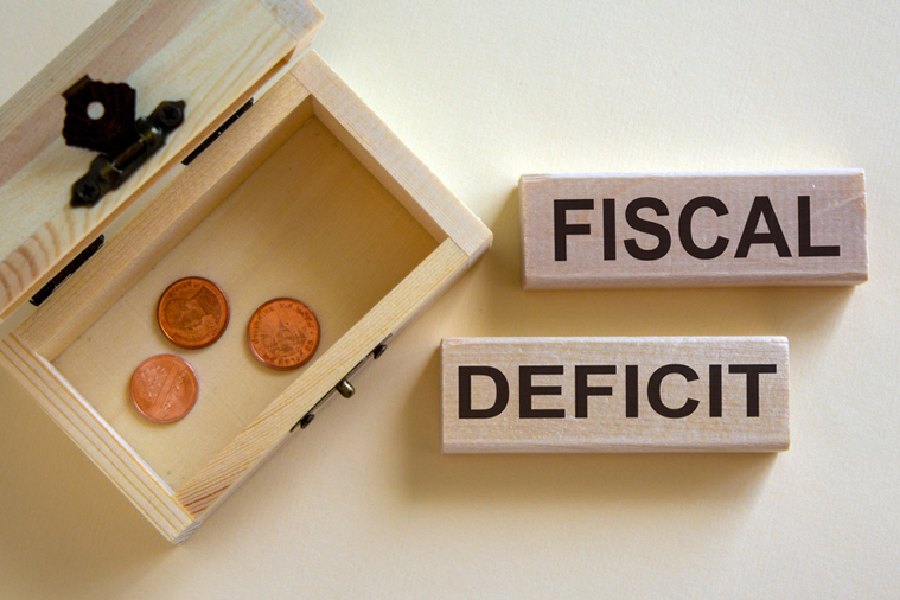The central government’s fiscal deficit touched 39.3 per cent of the full year target in the first half of the current financial year, slightly higher than 37.3 per cent recorded in the year-ago period.
In actual terms, the fiscal deficit, or the gap between expenditure and revenue, worked out to Rs 7.02 lakh crore at the end of September, according to data released by the Controller General of Accounts (CGA).
In the Union budget, the government projected to bring down the fiscal deficit to 5.9 per cent of the gross domestic product (GDP) in the 2023-24 financial year.
The fiscal deficit was 6.4 per cent of GDP in 2022-23, against the earlier estimate of 6.71 per cent. The tax revenue was at Rs 11.60 lakh crore or 49.8 per cent of the annual target. During April-September 2022-23, the net tax collection was 52.3 per cent of that year’s annual budget estimate (BE).
The Centre’s total expenditure was Rs 21.19 lakh crore, or 47.1 per cent of BE for 2023-24, marginally higher than 46.2 per cent of BE for 2022-23.
The government of India has transferred Rs 4,55,444 crore to state governments as devolution of share of taxes till September, which is Rs 79,338 crore higher than the previous year. Of the total revenue expenditure, Rs 4.84 lakh crore was on account of interest payments and Rs 2.06 lakh crore towards major subsidies.
Icra chief economist Aditi Nayar said higher than budgeted dividend surplus transfer of Rs 8,742 crore from the RBI is likely to provide some cushion to meet any undershooting in other revenue streams, including disinvestment or potential overshooting in expenses.










